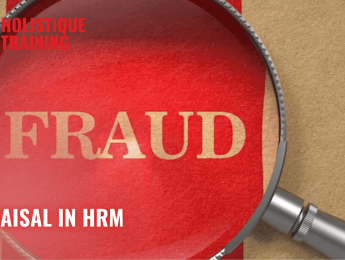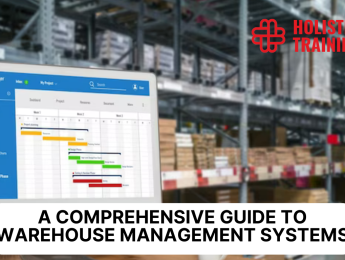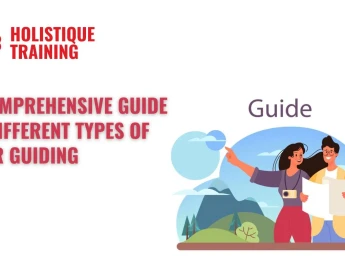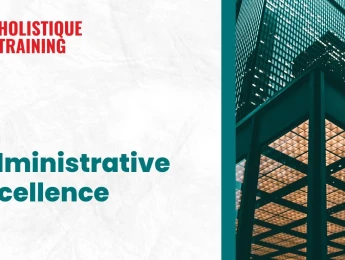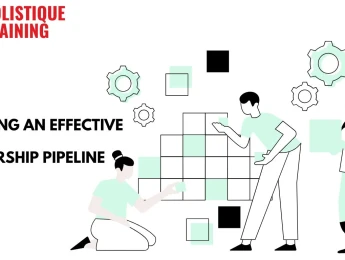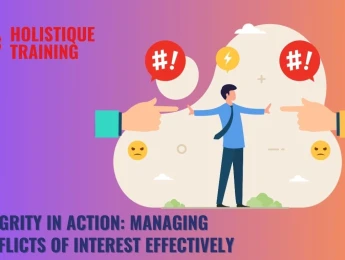In our rapidly evolving digital age, financial fraud has emerged as a pervasive and sophisticated threat. Deceptive individuals and criminal organisations exploit technology, social engineering, and human vulnerabilities to orchestrate elaborate schemes aimed at obtaining money, assets, or sensitive information illegally. As a responsible individual or business owner, understanding the intricacies of financial fraud, learning how to identify if you've fallen victim, recognising the common types of fraud, and adopting preventive measures are essential aspects of safeguarding your financial well-being. In this comprehensive guide, we will delve into the world of financial fraud, empowering you with the knowledge and tips to protect yourself and your loved ones from potential scams.
What Is Financial Fraud?
Financial fraud encompasses a range of illicit activities devised to deceive individuals or organisations to gain unlawful financial benefits. Fraudsters exploit trust, lack of awareness, and emotions to manipulate their targets successfully. Whether it is through cybercrime, identity theft, deceptive investment schemes, or phishing attacks, the impact of financial fraud can be devastating and far-reaching.
How to Know if You've Been Subject to Financial Fraud
Recognising that you've become a victim of financial fraud is the first step towards mitigating its consequences. Here are some crucial warning signs to watch out for:
Unusual Account Activity
Regularly reviewing your bank statements and credit card transactions is like conducting a health check for your finances. Look out for unfamiliar or unauthorised charges, which could be indicative of fraudulent activities. These could range from small, seemingly innocuous transactions to larger, more blatant attempts to syphon funds from your accounts.
Type of Activity | Potential Implications |
Unauthorised Withdrawals | Stolen card information or compromised account |
Unusual Purchases | Potential identity theft or compromised credentials |
Abnormal Transfers | Fraudulent activities, such as phishing or hacking |
Suspicious Emails and Calls
The digital age has brought with it the rise of phishing scams, where fraudsters send emails or make calls pretending to be legitimate entities. Exercise caution when receiving unsolicited communications requesting personal information or financial details. Scrutinise the language used, check for grammatical errors, and verify the sender or caller's identity before sharing any sensitive information.
Unapproved Account Openings
Receiving notifications about accounts or credit cards you never applied for is a red flag for potential identity theft. If you find yourself in such a situation, act swiftly. Contact the respective financial institution, freeze or close the unauthorised accounts, and take steps to secure your personal information to prevent further misuse.
Unexpected Bills or Collections
Imagine receiving invoices or collection notices for products or services you never purchased. This unsettling scenario could indicate that someone is using your identity for financial gain. Don't ignore such notices; investigate immediately. Contact the relevant parties to dispute the charges, and consider placing fraud alerts on your accounts to add an extra layer of protection.
Drastic Drop in Credit Score
Your credit score is a crucial indicator of your financial health. Monitoring it regularly can help you identify any sudden drops that might be attributed to fraudulent activities. Investigate the reasons behind any unexplained decreases in your credit score, as this could be a sign that someone is using your identity to engage in financial transactions without your knowledge.
Missing Mail
In a world dominated by digital communication, missing physical mail can be a sign that someone has tampered with your address to intercept sensitive information. If you stop receiving regular bills or account statements by mail, contact your service providers immediately to confirm and update your contact details securely.
Fake Job Offers
Job seekers should be wary of enticing job offers that demand upfront fees or request personal information early in the application process. Legitimate employers typically do not require payment from job applicants. Research the company thoroughly, check for online reviews, and validate the job offer through multiple channels before sharing any personal information.
These warning signs, when understood and acted upon promptly, can serve as effective tools in detecting and mitigating the impact of financial fraud. Vigilance and a proactive approach are paramount in navigating the digital landscape securely. If you ever suspect that you've fallen victim to financial fraud, swift action and collaboration with relevant authorities are key to minimising the potential damages and preventing further harm.
How Frequent Has Financial Fraud Become?
Financial fraud has become increasingly prevalent in recent years, impacting individuals and organisations worldwide. The scale and frequency of these fraudulent activities are alarming, with the potential to cause substantial financial losses and irreparable damage to victims. Let's delve into the current landscape of financial fraud and gain insights into its frequency and impact:
Rising Incidence Rates
As technology advances and the world becomes more interconnected, financial fraud has seen a significant surge. According to a recent study by PwC, a staggering number of organisations have fallen victim to fraudulent activities, with a reported 51% experiencing fraud in the past two years alone. This figure represents the highest level of fraud incidence recorded by PwC in the past two decades, highlighting the growing sophistication of fraudsters and the need for enhanced preventive measures.
Cybercrime and Digital Fraud
With the digital revolution, cybercrime has emerged as a dominant form of financial fraud. Criminals exploit weaknesses in cybersecurity systems to steal personal information, execute phishing scams, and perpetrate identity theft. The convenience and anonymity of the digital realm have made it an attractive hunting ground for fraudsters, leading to a surge in online scams and fraudulent transactions.
Vulnerabilities in Remote Work
The COVID-19 pandemic catalysed a rapid shift towards remote work, presenting new challenges and vulnerabilities for organisations. Fraudsters capitalised on the transition to remote operations, targeting unsecured home networks and exploiting employees' unfamiliarity with remote work protocols. As a result, instances of business email compromise (BEC) and other fraud-related activities soared, emphasising the importance of robust security measures in remote work environments.
Impact on Individuals
While businesses face significant risks from financial fraud, individual consumers are also susceptible to various scams. From deceptive investment schemes to fake charities, individuals must remain vigilant and educated about common fraud tactics. Falling victim to financial fraud can result in not only financial losses but also emotional distress and damage to personal credit.
The Need for Fraud Prevention Training
As financial fraud continues to evolve, organisations and individuals must proactively equip themselves with the knowledge and skills to combat this menace effectively. Fraud Prevention Training offers a comprehensive approach to understanding the latest fraud trends, recognising warning signs, and implementing preventive measures. By educating employees, business owners, and individuals about the intricacies of financial fraud, these courses play a crucial role in fostering a safer and more secure financial ecosystem.
The 10 Most Common Types of Financial Fraud
Now that we understand the significance of recognising financial fraud, let's delve into the ten most common types of fraudulent schemes that you should be aware of to stay one step ahead of potential scammers:
Identity Theft
Identity theft is a pervasive form of financial fraud where criminals obtain personal information such as social security numbers or financial data to impersonate individuals. Once armed with this information, they can commit fraud in the victim's name, opening bank accounts, applying for credit cards, or even filing fraudulent tax returns.
Phishing Scams
Phishing scams involve cybercriminals sending fraudulent emails or setting up fake websites to trick individuals into revealing sensitive information such as passwords and credit card details. These emails often appear legitimate, imitating well-known institutions or companies, and may contain urgent requests for personal information.
Ponzi Schemes
Ponzi schemes are deceptive investment strategies where con artists promise high returns on investments. They use money from new investors to pay off earlier ones, creating an illusion of profitability. The scheme continues until it collapses, leaving later investors with substantial financial losses.
Credit Card Fraud
In credit card fraud, criminals use stolen credit card information to make unauthorised purchases. This can happen through physical theft of cards or data breaches. Victims may only realise they've fallen prey to this type of fraud when reviewing their credit card statements and noticing unfamiliar charges.
Fake Charities
Scammers exploit people's compassion by setting up fake charitable organisations to solicit donations. These fraudulent entities divert funds for personal gain rather than supporting the causes they claim to champion. It's crucial to verify the legitimacy of charities before making any donations.
Investment Fraud
Fraudulent investment opportunities prey on individuals, enticing them with promises of unrealistic returns and guaranteed profits. Victims may be lured into investing in nonexistent ventures or pyramid schemes, resulting in significant financial losses.
Real Estate Fraud
Real estate fraud encompasses various illicit activities, including title fraud, mortgage fraud, and foreclosure scams. Perpetrators may engage in identity theft to transfer property titles or initiate fake foreclosure proceedings, leading to substantial financial and emotional distress for the victims.
Medicare and Health Insurance Fraud
Dishonest medical providers may engage in Medicare and health insurance fraud by submitting false claims or engaging in billing fraud. This type of fraud exploits weaknesses in insurance systems, leading to inflated healthcare costs and financial losses for both individuals and insurers.
Online Auction Fraud
Online auction platforms are not immune to fraud. Criminals deceive buyers by either failing to deliver purchased items or providing subpar products. To protect against online auction fraud, it's essential to research sellers thoroughly, read reviews, and use secure payment methods.
Pyramid Schemes
Pyramid schemes involve recruiting members who pay to join and earn money by enrolling new participants. The structure is unsustainable and eventually collapses, leaving those at the bottom with financial losses. Pyramid schemes often disguise themselves as legitimate multi-level marketing ventures.
Understanding these common types of financial fraud empowers individuals and businesses to recognise potential threats. Being vigilant, conducting due diligence, and staying informed about evolving fraud tactics are essential strategies in protecting oneself from falling victim to these deceptive schemes. Additionally, regulatory bodies and law enforcement agencies play a crucial role in investigating and prosecuting those responsible for perpetrating financial fraud, contributing to the overall safety and security of the financial landscape.
Tips to Protect Yourself from Financial Fraud
To fortify your defences and shield yourself from the clutches of financial fraud, here are some essential tips that will help you navigate the digital landscape with confidence and protect your financial well-being:
1- Secure Your Personal Information
Safeguarding sensitive data such as social security numbers, financial records, and passwords is paramount. Only share such information with trusted entities and secure websites. Be cautious about the information you disclose online and offline, and regularly update passwords for online accounts.
2- Regularly Monitor Accounts
Vigilance is a key weapon against financial fraud. Frequently review your bank statements, credit card transactions, and credit reports for any irregularities. Promptly report any unauthorised transactions or suspicious activities to your financial institution to mitigate potential damages.
3- Enable Two-Factor Authentication
Whenever possible, opt for two-factor authentication to add an extra layer of security to your accounts. This additional step, often involving a unique code sent to your mobile device, provides an added barrier against unauthorised access, even if your login credentials are compromised.
4- Be Cautious with Emails and Calls
Verify the legitimacy of unsolicited emails and calls before disclosing personal information or financial details. Be wary of unexpected emails requesting sensitive information or urgent actions. Double-check the sender's email address and contact the institution directly using verified contact details if in doubt.
5- Research Investment Opportunities
Thoroughly investigate any investment opportunity or financial advisor before committing your money. Fraudsters often use enticing promises of high returns to lure unsuspecting investors. Verify the legitimacy of investment opportunities through reputable sources and consult with financial professionals if needed.
6- Check Charity Legitimacy
Before making donations, verify the authenticity of charitable organisations. Scammers often exploit people's generosity, creating fake charities to divert funds for personal gain. Use reputable charity verification websites or check with local authorities to ensure your donations go to legitimate causes.
7- Shred Sensitive Documents
Dispose of documents containing personal information securely by shredding them. This is especially important before discarding them in the trash. Identity thieves may sift through garbage in search of valuable information, making document shredding an effective preventive measure.
8- Educate Yourself and Others
Stay informed about the latest scams and fraud tactics. Knowledge is a powerful defence against financial fraud. Regularly update yourself on common scams, emerging threats, and preventive measures. Share this knowledge with friends and family to create a safer community where individuals are collectively vigilant against fraud.
9- Use Secure Wi-Fi Networks
When conducting financial transactions or accessing sensitive information online, ensure that you are using a secure Wi-Fi network. Public Wi-Fi networks may expose your data to potential interception by cybercriminals. Use virtual private networks (VPNs) for an added layer of security, especially when accessing financial accounts.
10- Monitor Your Credit Report
Regularly check your credit report for any unusual activity. Monitoring your credit report allows you to detect unauthorised accounts or changes in your credit history promptly. Many credit reporting agencies offer free annual credit reports, and utilising this service is an excellent way to stay on top of your financial health.
By incorporating these tips into your daily financial practices, you can significantly reduce the risk of falling victim to financial fraud. Prevention is a collective effort, and an informed and vigilant community is better equipped to identify and thwart fraudulent activities, contributing to a safer and more secure financial landscape for everyone.
The Role of Technology in Fraud Prevention
In the perpetual cat-and-mouse game between fraudsters and those safeguarding financial systems, technology stands as a formidable ally in the ongoing battle against financial fraud. As the digital landscape evolves, so does the arsenal of tools available to detect, prevent, and mitigate fraudulent activities.
Advanced Analytics and Machine Learning
One of the key players in the fight against financial fraud is advanced analytics, particularly machine learning algorithms. These technologies analyse vast amounts of data, identifying patterns and anomalies that may indicate fraudulent behaviour. Financial institutions deploy these sophisticated algorithms to recognise deviations from normal transaction patterns, enabling early detection of potentially malicious activities.
Blockchain Technology
Blockchain, originally developed as the underlying technology for cryptocurrencies, is now making significant strides in enhancing security in financial transactions. Its decentralised and tamper-resistant nature ensures that once a transaction is recorded on the blockchain, it becomes virtually immutable. This makes it an invaluable tool in preventing fraud, especially in areas like verifying the authenticity of digital assets, securing smart contracts, and enhancing the transparency of transactions.
Biometric Authentication and Mobile Security
The advent of biometric authentication, such as fingerprint and facial recognition, has added an extra layer of security to personal accounts. Financial institutions and mobile banking apps leverage these technologies to ensure that only authorised individuals can access sensitive financial information. With biometrics, the risk of unauthorised access through stolen passwords or PINs is significantly reduced.
Real-time Transaction Monitoring
The ability to monitor transactions in real-time is a powerful weapon against fraud. Financial institutions employ systems that analyse transactions as they occur, flagging any suspicious activities instantly. This proactive approach allows for swift intervention, such as freezing accounts or triggering additional authentication steps, to prevent further fraudulent transactions.
Collaboration and Information Sharing
Technology facilitates collaboration and information sharing among financial institutions and regulatory bodies. Platforms and databases that compile data on known fraud attempts enable a collective defence against evolving tactics. The exchange of information helps institutions stay ahead of emerging threats by learning from the experiences and insights of others in the industry.
Education and Awareness Platforms
Technology not only aids in preventing fraud but also plays a crucial role in educating individuals and businesses about potential threats. Online platforms and applications provide real-time updates on the latest fraud schemes, offering tips on how to recognise and avoid them. This democratisation of knowledge empowers users to stay vigilant and take proactive measures to protect their financial well-being.
As technology continues to advance, so does its role in fortifying the defences against financial fraud. Staying informed about these technological advancements is essential for individuals and businesses alike. By embracing and leveraging the latest tools and strategies, we collectively contribute to creating a safer and more secure financial landscape for everyone.
Conclusion
Financial fraud is a persistent threat that demands vigilance, awareness, and education to combat effectively. By understanding what financial fraud entails, recognising potential signs of being targeted, and implementing preventive measures, you can fortify your defences against scams and fraudulent activities. Protecting your financial well-being and that of your loved ones is not an option but a necessity in the interconnected world we live in today. Stay informed, stay cautious, and empower yourself against financial fraud. Remember, knowledge is the key to safeguarding your hard-earned money and financial security.
To delve even deeper into the world of fraud prevention and equip yourself with advanced strategies, consider enrolling in our comprehensive ‘Fraud Prevention Training’ course. Take charge of your financial security and stay one step ahead of scammers with expert knowledge and practical skills gained from our course. Together, let's build a safer and more secure financial landscape for everyone.


